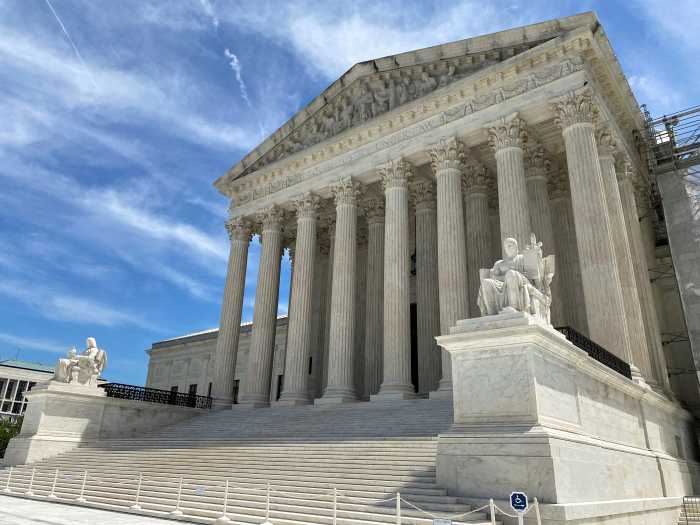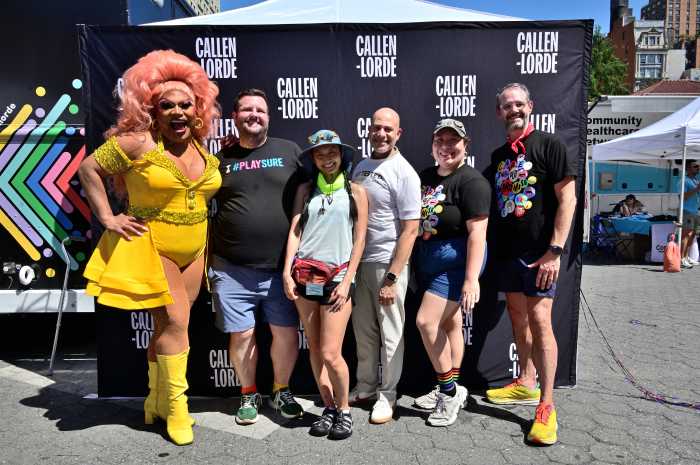BY DUNCAN OSBORNE | Gay and AIDS groups are expressing growing frustration with New York City's response to HIV in communities of color, a population that has been disproportionately affected by the AIDS epidemic.
In the February 8 issue of its weekly newsletter, Housing Works, an AIDS group, noted that $2.6 million dollars that was budgeted by the City Council in June of 2007 to fund HIV prevention in communities of color still has not been distributed to organizations.
Calling it an “unfortunate tradition,” the group said it was routine that the cash, which has been in every city budget in varying amounts since 2001, is “needlessly delayed because of City Hall bureaucracy.”
Terri Smith-Coronia, director of New York City public policy at Housing Works, told Gay City News that the delays made it difficult for the groups that ultimately receive the dollars to spend them because the money must be used by June 30, the final day of the city's fiscal year.
“That's why a lot of people turn it back because they can't spend it that quickly,” she said. “This has been going on for year after year after year… We attempt to throw money at it and then we want to know why the numbers keep rising.”
AIDS and gay groups aggressively advocated for the cash, originally $5 million annually, in 2000 and 2001. It was intended to quickly infuse cash into communities hardest hit by HIV. City Hall has declined to baseline the money, or make it a permanent part of the city budget, requiring groups to lobby for it year after year. That has also made planning for how the cash will be spent difficult.
“If the City Council would just baseline the funds, let us create the program we wanted to create, if somebody would just commit to the programming we wanted to do, that would be a real solution,” Smith-Coronia said.
City Council members routinely boast about the dollars when meeting with constituents.
“This pot of money is clearly a political football,” said Smith-Coronia.
The City Council and health department press offices did not respond to requests for comment.
Also on February 8, groups working with black gay men were angered when Dr. Thomas R. Frieden, the city's health commissioner, abruptly pulled out of a meeting to discuss HIV among those men.
“It's also a slap in the face of the black gay community,” said Gary English, interim executive director of the New York State Black Gay Network, a coalition of 16 groups. “He's saying my time is too important to meet with black gay leaders.”
The Network, the Gay Men's Health Crisis (GMHC), People of Color in Crisis, Gay Men of African Descent, the Ali Forney Center, Harlem United, and the Community HIV/AIDS Mobilization Project (CHAMP) sought the meeting, but were told on February 7 that Frieden could not attend and they would be meeting instead with Dr. M. Monica Sweeney, assistant commissioner for the Bureau of HIV/AIDS Prevention and Control.
“People were very disappointed and it was the consensus of the group not to have the meeting unless he was there,” English said.
GMHC, which is typically careful in its criticisms of government, was also disturbed.
“We are gravely disappointed that the commissioner has decided to not participate in this meeting and that we learned of this on African American HIV Testing day,” said Bill Stackhouse, director of GMHC's Institute for Gay Men's Health. “Black gay men's lives matter and need extraordinary attention at this time. It's been too long since their report was issued in September. We want to see a commitment from New York City at a much higher level to address these needs.”
In September, the city health department reported that new HIV diagnoses among gay and bisexual men under 30 increased by 33 percent from 2001 to 2006 while such diagnoses among men who have sex with men (MSM) over 30 declined by 22 percent. While increases were reported among all gay and bisexual men under 30, the largest increases were among black MSM.
On January 31, the group met with representatives of City Council Speaker Christine Quinn, an out lesbian who represents Chelsea, and asked for a resolution from the City Council declaring HIV an emergency in the black gay community and $5.5 million.
“It would mean the city is seeing the infection rate among black gay men as an issue that needs to be taken up, it's an issue that needs special attention,” English said.


































